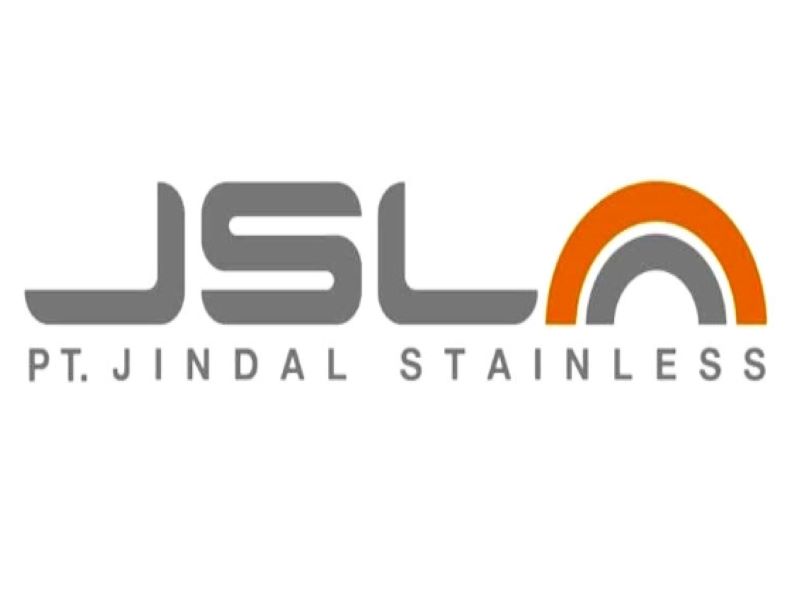 JSL
JSL New Delhi/IBNS: Jindal Stainless Limited (JSL) earned a major rating upgrade from CRISIL Ratings, with the agency assigning ‘CRISIL AA-/Stable’ rating to the long-term bank facilities of the company.
The previous assigned rating was ‘CRISIL A+/Stable’. JSL’s short-term bank facilities have been reaffirmed at ‘CRISIL A1+’.
As per CRISIL, this upgrade underlines significant improvement in business risk profile of JSL, along with Jindal Stainless (Hisar) Limited (JSHL), and a sustainable improvement in the operating efficiency of the company driven by better per tonne EBITDA levels.
This upgrade acknowledges improvement in the financial risk profile of JSL, led by strong liquidity, deleveraged balance sheet, and minimal long-term debt obligation over the medium term.
It factors in the market leadership position of the Jindal Stainless group (JSL and JSHL) in the domestic stainless steel industry in terms of manufacturing capacity, sales volume, and sizeable export presence. Commenting on this development, Managing Director, JSL, Abhyuday Jindal said, “This rating upgrade re-validates our market leadership position as a trustworthy and consistent business player. The Company has delivered a strong performance despite being susceptible to input cost volatility and cyclicality in the stainless steel industry, while competing with dumped Indonesian and Chinese imports. JSL is undertaking capex for brownfield expansion that will further improve its domestic and global footprints.”
CRISIL Ratings also upgraded its rating on the long-term bank facilities of Jindal Stainless (Hisar) Ltd (JSHL) to ‘CRISIL AA-/Stable’ from ‘CRISIL A+/Stable’, and also assigned its ‘CRISIL A1+’ rating on the short-term bank facilities of JSHL.
Excerpts from the report:
Superior market position coupled with a sizeable export presence: “...Capabilities to manufacture a wide variety of grades across all series of SS (mainly 200, 300 and 400 series – classified based on exact content of nickel and other alloys) -- helped the group cater to a diversified end-user base, comprising automobile-railway-transportation (ART), architecture-building-construction (ABC), process industries (food and pharmaceuticals), consumer goods (durables, kitchenware), and healthcare (equipment)….. Its major export markets include Europe, South East Asia and Middle East.”
Sustainable improvement in per tonne EBITDA levels led by operating efficiencies: “The improvement can primarily be attributed to sustainable changes such as higher realisations, aided by better product mix, and impact of cost-efficiency measures undertaken by the company….. The JSL plant has installed a railway siding and inland container depot (ICD) to transport raw material and finished goods, leading to savings on logistics costs and substituted high-cost propane with cheaper coke oven gas. Furthermore, the JSL plant is in Odisha, which has 93 percent of India’s chromite ore reserves (apart from nickel, chrome is key input in making SS) and is supported by a captive power plant of 264 megawatt (MW) that covers bulk of its electricity requirement.
"These initiatives coupled with stable demand indicators significantly improved capacity utilisation, with production rising to 0.82 million tonne in fiscal 2021 from 0.45 million tonne in fiscal 2015. In the JSHL plant, greater focus on the VAP segment (Value Added Products) has ensured healthy average utilisation levels of around 80 percent over fiscals 2015 to 2021. The group also has the flexibility to shift production to SS series with lower nickel.”
Significant improvement in financial risk profile, supported by debt reduction: “Aided by healthy operating performance, JSL has been able to substantially reduce consolidated external debt to Rs 1,971 crore as on September 30, 2021, from Rs 3,488 crore as on March 31, 2019. JSHL also pared its consolidated debt to Rs 1,527 crore from Rs 2,367 crore, over the same period.
"CRISIL Ratings understands that the group reduced debt in such a way that bulk of the scheduled term debt obligation over the next two fiscals are already paid and it has only about Rs 245 crore of scheduled payments to be made till end of fiscal 2023. This provides the group sufficient cushion to absorb ongoing capex and underpins the management’s strong focus on debt reduction.
"Consequently, the interest coverage ratio improved to 4.4 times in fiscal 2021, from 2.6 times in fiscal 2019, at the group level. The same has further improved to around 13 times in the first half of fiscal 2022.”
Prudent working capital management: “With improving scale, the group saw better bargaining power with suppliers and customers.
"Receivables for both entities have been below 30 days over the last three fiscals, with payables at 75-90 days.
"The group has taken several steps to minimise inventory, especially that of nickel (the costliest input material) through regular monitoring, to minimise any impact of price volatility. It also maintains a healthy order book to better manage pricing risk.”
Support Our Journalism
We cannot do without you.. your contribution supports unbiased journalism
IBNS is not driven by any ism- not wokeism, not racism, not skewed secularism, not hyper right-wing or left liberal ideals, nor by any hardline religious beliefs or hyper nationalism. We want to serve you good old objective news, as they are. We do not judge or preach. We let people decide for themselves. We only try to present factual and well-sourced news.







